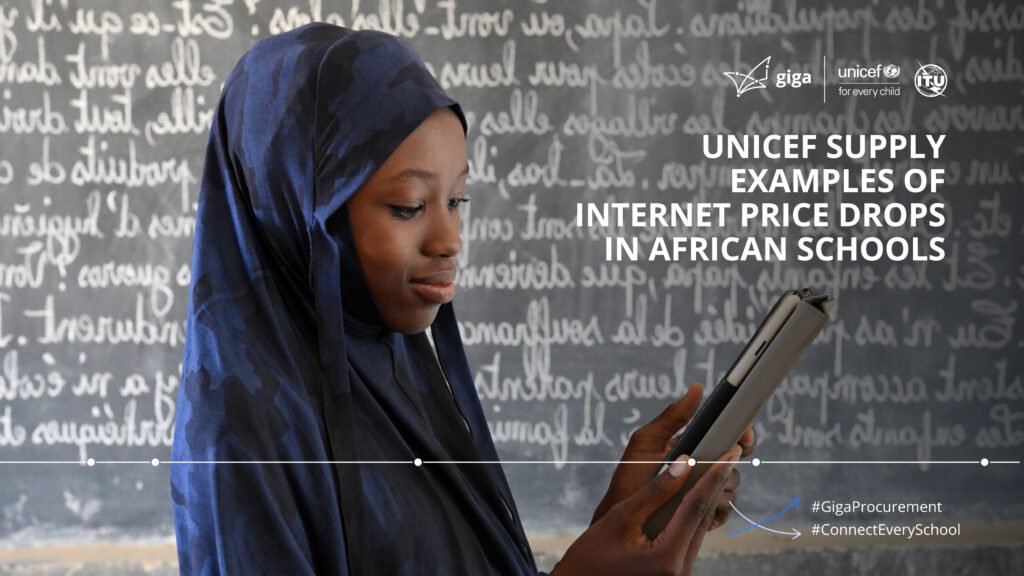Since launching the Giga initiative in 2019, UNICEF has found that bulk procurement strategies can reduce the cost of school connectivity—both initial connection (CAPEX) and ongoing internet access (OPEX)—by 30 to 60 percent.
Here are some examples from African countries where UNICEF-supported pilot projects have significantly reduced connectivity costs:
- Rwanda: Internet prices fell by 55%, from an average USD 20 per Mbps to USD 9, across a pilot involving 63 schools. UNICEF provided procurement advice and financial support, enabling a common bid for multiple schools and real-time monitoring of connectivity performance.
- Kenya: Through access to infrastructure implemented by the government, UNICEF has helped prices to drop by 60% in a project where providers are connecting schools to the National Optic Fibre Backbone Infrastructure (NOFBI). Besides bringing prices down, UNICEF’s support for financial sustainability and real-time connectivity monitoring also improved internet reliability and speeds.
- Botswana: The government implemented a pooled procurement approach to connect all schools, health centres, and community councils (kgotlas), reducing the cost per Mbps by 93%. With support from UNICEF and Giga—through early technical assistance, pilot financing, and market-shaping tools—over 100 schools were connected. This collaboration helped support a major government milestone: 700 schools connected and 400,000 students benefiting from reliable internet nationwide by the end of 2024.
- Sierra Leone: A Giga-supported pilot connecting 42 schools demonstrated the potential for scale and helped unlock a US$ 5 million loan from the Islamic Development Bank (IsDB). Additional UNICEF support included identifying financing opportunities, advising on proposal development, and facilitating engagement between the government and potential investors and partners.

